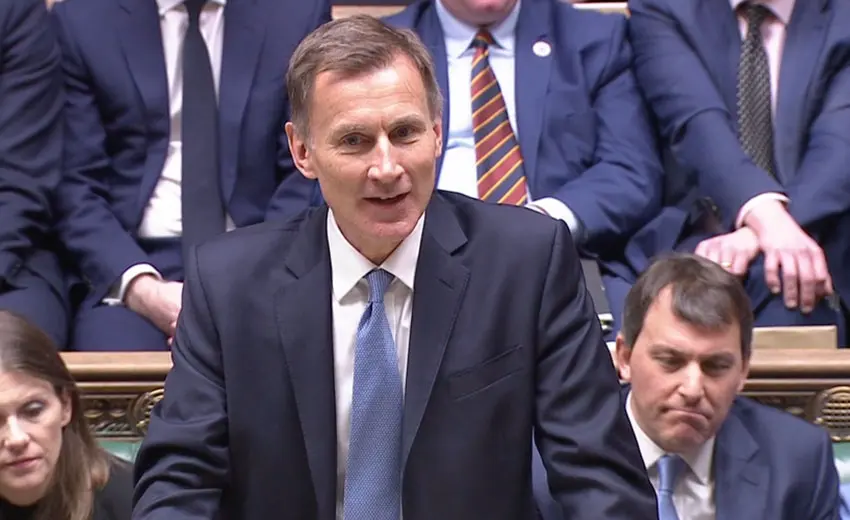Jeremy Hunt could have another £11billion for tax cuts before the election, according to a new analysis.
Estimates from Capital Economics suggested that falling debt servicing costs and optimism on interest rates have gifted the Chancellor a windfall.
Ruth Gregory, the deputy chief economist, said that over the past fortnight gilt yields have dropped by around half a percent.
That would give Mr Hunt around £24.5billion to play with by the next fiscal event, rather than the £13billion of headroom previously projected.
The analysis indicated that the picture could be better still if wage growth comes in higher and interest rates dip faster than the Treasury’s OBR watchdog anticipated. That could mean Mr Hunt having a buffer of £35billion to meet his main fiscal rules.
The figures are a boost for the Chancellor and Rishi Sunak with perhaps a year until the country goes to the polls.
Cuts to national insurance were announced in the Autumn Statement, but ministers made clear that was just an initial move to reduce the tax burden – which has reached a new post-war high.
However, think-tanks such as the IFS have pointed out that Mr Hunt did not adjust public spending to account for surging inflation.
The government’s plans also assume that fuel duty will rise in the coming years, which has not happened in the past.
Ms Gregory said: ‘In the Spring Budget, there could be some headline grabbing measures that voters feel the benefits of quickly to help prime the polls.
‘At the very least, the Chancellor will presumably cancel the rise of 5p and the RPI increase in fuel duty in April 2024, which will cost about £6bn a year.
‘Perhaps some form of cut to inheritance tax could be considered again in the Spring Budget.
‘Reducing the 40 per cent rate of inheritance tax on estates above the £325,000 threshold to 20 per cent would cost about £3.6billion per year.
‘Abolishing inheritance tax completely could cost about £8.4billion.’


